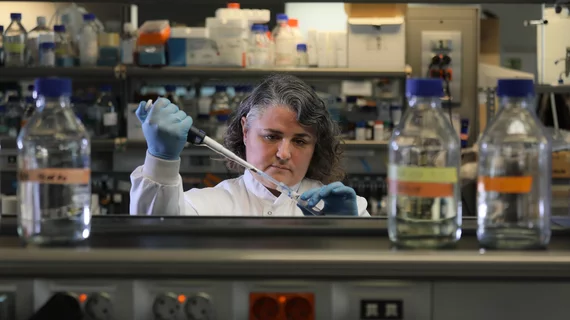Landmark discovery provides clinicians with a ‘valuable clinical tool’ for diagnosing myocarditis
Researchers in Spain have identified a blood biomarker that can distinguish between myocarditis and acute myocardial infarction (AMI), sharing their findings in the New England Journal of Medicine.
Diagnosing acute myocarditis usually requires an invasive biopsy or medical imaging exams that aren’t always available, the study’s authors explained. Myocarditis is also regularly misdiagnosed as an AMI, yet another reason that finding a helpful biomarker could make such a significant impact on patient care.
Led by Pilar Martin, PhD, a specialist at the National Center for Cardiovascular Research in Madrid, the group performed one thorough analysis after another, eventually determining that TH17 cells—“characterized by the production of interleukin-17”—are a recognizable feature during the acute phase of myocarditis. This leads to the presence of microRNA mmu-miR-721 in the blood of mice with myocarditis—and that discovery helped Martin et al. successfully establish what they say is the very first blood biomarker for myocarditis to have a sensitivity and specificity higher than 90%.
“Our finding has great potential as a valuable clinical tool for the precise and noninvasive diagnosis of myocarditis from small drops of blood,” Martin said in a prepared statement.
The full analysis can be read here.

